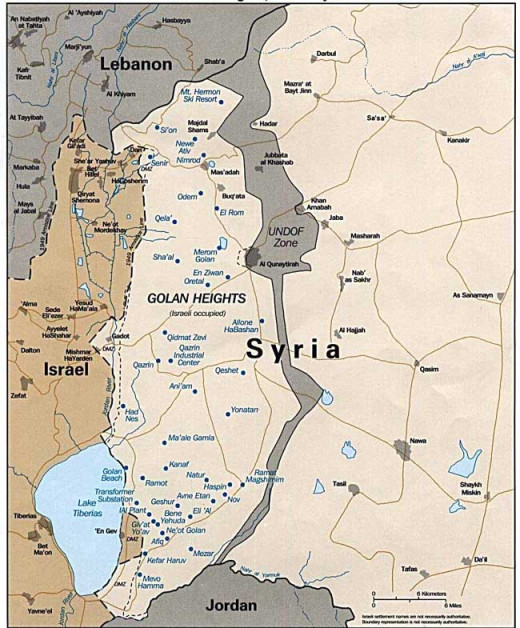Study War (No More?)
The Tricks of the Trade
All the best warmongers had them, even the worst, though there are exceptions. On occasion, basic instinct had to be relied upon and instantaneous decisions made. Some brought about victory. Others led to defeat. Some battles established how life would be for centuries to come. Others were reversed the very next day. But the reticence of the present administration to engage the enemy with superior force has caused me to search my own soul. Why respond like a Pavlovian dog to drum beats? Why the soaring dimestore thrill of the bully pulpit? Raised voices and airborne fists. Puffed up pride and uncritical self-righteousness. Just thinking about what this nation could do if it wanted to on fields of battle can produce a drugless addictive high. But for what? The fact of the matter is, however, that no single thread of argument on any subject having to do with the use or not of deady weapons is without a concomitant argument that casts doubt on the former.
Wrong Decisions

Winners and Losers
Custer was known for his disastrous charge into a valley of death when he might have chosen not to engage the enemy -- at least at a certain time in a certain way. Until Little Bighorn, that fateful day, Custer had little to no familiarity with failure when it came to fighting Indians. Of course, one cannot believe everything one reads, nor is everything to know of any merit or relevancy in print. But it is written that very often Native Americans fought without battle plans -- an almost unheard of phenomenon in the military historical record. Sometimes spontaneity must have led to disappointing rousts. But possibly just as often spur of the moment strategies overwhelmed the more sophisticated infantries and cavalries against which they fought. But here again, we are dealing with a time slot in which combat nearly always won over dialogue. In some circles today, the latter is scoffed at without letup. How and when to use force is nevertheless not an easy matter.
American Withdrawalism
Should America withdraw from world trauma?
Syria and the Balkans
This is now the crux of the issue. Inundated as we are with rabble-rousing newspaper-written diatribes and saber-rattling harangues on television, the still small voices of scholarly research and reason are totally smothered. Syrian writers and Americans with Syrian interests frequently compare Syria's current bust-up to what had gone on in the Balkans years earlier. In the latter case, America took sides, entered into combat, and helped to bring about a better resolution, however imperfect, than might otherwise have obtained. But in Syria, where many Syrians and their Western supporters are disgusted with President Assad, no clarity has been attained. The redlines, for instance, have become murkier and murkier as American foreign policy becomes more and more stagnant. How many pointless deaths should it take before American action is called upon? Twenty thousand? A hundred and twenty thousand? These weird mathematical equations with their strange variables are not encouraging.
It is the same with chemical warfare, snipers who target children, and rape. They are an outrage, yes, but will not provoke a declaration of war. Assad is methodically teaching Syrians that they cannot achieve self-determination. It may well be that freedom is an honorable concept that, in its idealistic, universal context, has come and gone. Of course, no blanket statement can be taken seriously. But the inability of the international community to once again exert control or influence over a relatively small nation that has turned itself into a test case for democracy says it all. Somewhere down the line, at some point in time, Syrians will come to their senses and submit to either the same dictator or another. As massacrees continue to drive the population into Turkish refugee camps, the reluctance of America to take initiative speaks well for its new embrace of Real Politik. It could, if it wanted to, save countless lives, but not without incurring expenses in terms of both dollars and lives.
The Islamic State took Iraq and now eyes Syria

Not In My Backyard
Turn the phrase around 180 degrees and it reads more like, if it is not in my backyard it is not my concern. This is nothing new. Isolationism has always been a viable strategy. Put another way, the intellectual imagination can produce an infinite amount of alternative retroactive scenarios. Suppose we had stayed out of both the Western and Eastern theaters during World War II, fortified our borders, and awaited full-fledged attacks from the Axis? Increased vigilance would have warded off surprises, like Pearl Harbor, extermination would have, lamentably, gone unchecked in Europe, and in Asia, the Chinese would probably have been subdued. A second, Nazi led attack, perhaps organized in exile, might have toppled Russia. In fact, had FDR not supported the Red Army, Russia might not have driven the Boche from her soil. With no D-Day, the so-called Aryans might have won the war. The Middle East could then have become the world's gas station, nothing more. But Americans fought for a vision and somehow brought a new world into existence. Hostilities ended in 1945, but the Cold War extended another bitter divide as serious as fascism. Now, years later, the vision is being let go in favor of a newer one to which few of us are privy. We know our strategists and policy-makers have more in mind than they are saying. So we wait, placing our trust, having no choice really, in an administration that may actually prove its mettle in the final analysis. The exercise of patience is not necessarily weakness. It can, in the right circumstances, mean discretion -- the better part of valor. Join battles overseas, if it must be so, trading a maybe selfish peace for an illusion of glory, but in time, the fighting will come to our shores anyways. No matter: we will be ready. Then, and only then, so the current line of thought suggests, should the military be called upon. In the meantime, civilians and soldiers alike huddle about the television set.
What If?
The Middle East Boggles the Mind
Another valid reason for staying out of the fray. America does not lack intelligence, but the situation is extremely complicated. It may be that there is no military solution. Pangloss was right: this is the best of all possible worlds. Only recently did we learn of a Christian sect, previously unknown, under seige by ISIS. Do any of us, newscaster or newshound, channel surfer or couch potato, take into account the fact that Syria's Assad is an Alawite in a Sunni-dominated country? It is late in the game for us to familiarize ourselves with the Sunni-Shia split, itself centuries old. What will the removal of Assad from power actually do? Regime change is fine, but only if the change is an improvement. Incredibly, Saddam Hussein was once an ally, among other reasons, because of his more liberal stance in such a hopelessly tense, religion-riddled region. Not only does the Western mind have difficulty grasping the nature of the men and women who populate the Middle East, but it seems as though in the end, no matter what is done or not, it is always the very meanest ideologues who ultimately win the day. Thus, there is no stopping ISIS until another group comes along, meaner still, which is as sure a bet as can be had. Still, why does Syria, too, in addition to Iraq, have to fall into anti-American hands? Or, is the question itself merely an expression of an obsolescent imperialism?
A Free Syrian Army Soldier

Slaughter
The recent beheadings stirred up a great deal of emotion. But again, to its credit, the present administration held back. It will not be goaded into a large-scale action simply on a dare from the enemy. Nevertheless, not just Americans but people everywhere are going to have to accustom themselves to living in a global world in which man-made disasters are not infrequent and often savage. We have long since graduated from car bombs and body counts. Even the atheist must allow for the existence of evil. What is going on, maybe not in front of our very noses, is a godless affront of biblical proportions. The administration is right, however, to remind us that the Middle Eastern quagmire is not the only hot spot in the world. America should not police the world. The world has to police itself. But why is it that the U.N., let's say, instead of being built up, given more power and authority, continues to be ridiculed in the same old way as the paper tiger that talks, talks, talks. Theoretically, it could have stopped the Rwandan incident. Just as theoretically, it could stop the bloodshed in Syria. True enough, speeches and votes, sanctions and condemnations, are not going to be effective. But wasn't the Wilsonian brainstorm specifically designed to put an end to warfare in favor of negotiations?
Christian Persecution in Syria
- Stories of Christian Persecution | Syria - YouTube
Learn about the struggle that Christians face in Syria. Do note that this video was created at the beginning stages of the Syria uprising, and since then, co...









